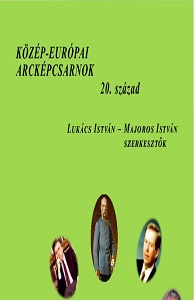Egy hiányzó fejezet Erdei Ferenc életútjából
A forgotten chapter from Ferenc Erdei’s biography
Author(s): Zsuzsanna Varga
Subject(s): Cultural history, National Economy, Agriculture, Marxist economics, Economic history, Political history, Interwar Period (1920 - 1939), WW II and following years (1940 - 1949), Post-War period (1950 - 1989)
Published by: Eötvös Loránd Tudományegyetem, Új-és Jelenkori Egyetemes Történeti Tanszék
Keywords: Ferenc Erdei; agrarian lobby; knowledge transfer; Hungary; socialism; Revolution of 1956;
Summary/Abstract: This paper focuses on a person being both a scientist and a politician who played a key role in socialist Hungary in the initiation of the opening towards the West. Ferenc Erdei (1910–1971) started his career as a soci-ologist in the early 1930s and was mainly involved in politics after 1945. Following the revolution in 1956, he drew back from his active political role. He established the Research Institute of Agricultural Economics of the Hungarian Academy of Sciences which became the the most import-ant background institution of the Agrarian Lobby. My paper argues that the experience Erdei gained from his study trips in Western Europe in the 1930s served later as a basis for the „bridge-building” between the socialist East and the capitalist West. In my paper I investigate which western countries Erdei launched the opening towards and through which channels he started to build a network as well as the political and professional debates that followed this process.
Book: Közép-európai arcképcsarnok. 20. század
- Page Range: 391-404
- Page Count: 14
- Publication Year: 2018
- Language: Hungarian
- Content File-PDF

